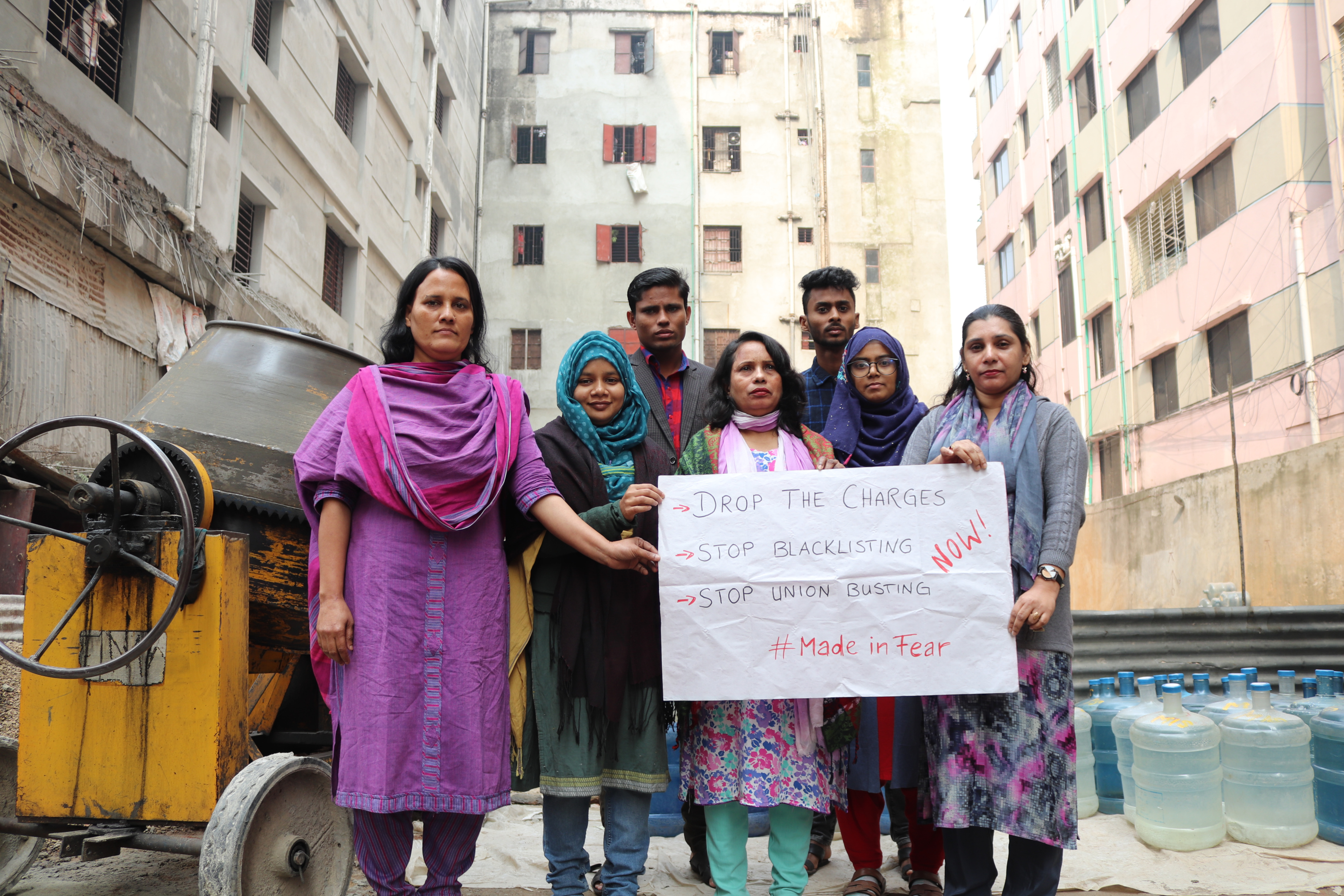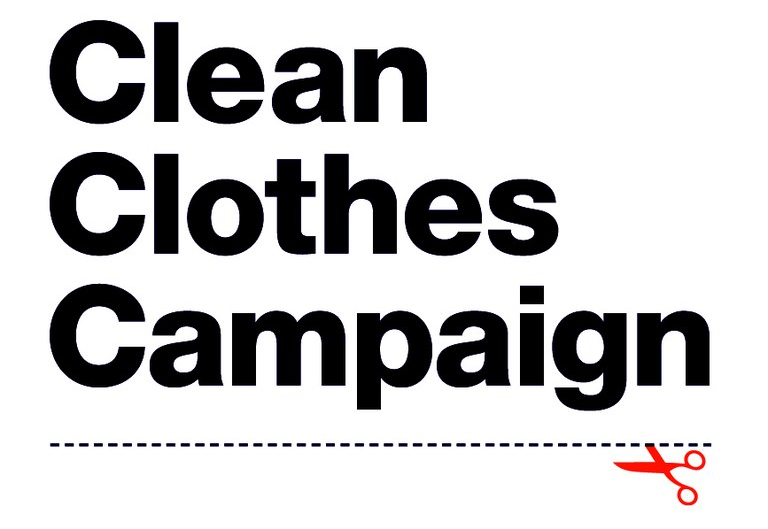
Reality check for the Bangladesh garment industry: what needs to be addressed?
Employers, multi-stakeholder initiatives, and academics will be discussing the Bangladesh apparel industry in the European Parliament today. All stakeholders in the industry will have a chance to speak, except for the workers who form the backbone of the industry. Requests to have a worker representative as one of the speakers on today’s panel have been turned down. Clean Clothes Campaign believes a reality check on the situation of the garment industry in Bangladesh is direly needed, and would like to highlight issues that might be left out in absence of worker voices.
- Workers in Bangladesh need freedom to organize instead of the threat of prison
Just over one year ago, tens of thousands of workers went on strike to protest their abominably low wages. Employers and the authorities responded with violence, mass dismissals, blacklisting, and trumped-up charges. Outreach by worker rights organizations to apparel companies in whose supply chain this repression was taking place has in the recent months led to 14 trumped-up criminal cases being officially dismissed. The concerning fact is that a year after the protests ended at least 19 criminal cases are still threatening about 3,500 workers with potential jail time. Brands associated with one or more of the ongoing cases include C&A, H&M, Inditex, Mango, Next, and Primark. Additionally, at least four criminal cases that have hung over the heads of activists since the wage protests of 2016-2017. Defendants have had to visit court on a monthly basis over the past three years to renew their bail and avert prison sentences. These cases do not only violate the rights of the charged workers but, with thousands of “unnamed” workers facing charges, they also have a stifling effect on all worker organizing across the garment sector in Bangladesh. This repression comes on top of a labour law that continues to fall short of international standards. The International Labour Organization judged in June 2019 that “there is no question that workers in Bangladesh face extraordinary obstacles to the exercise of their right to freedom of association”. Apparel companies, employers, and governments therefore all must take further action to make sure these remaining criminal cases against workers are dismissed, and to put an end to the blacklisting, reinstate workers, and foster freedom of association in the country.
- Workers in Bangladesh need to be sure their factory is safe
The Accord on Fire and Building Safety in Bangladesh’s comprehensive and binding programme of inspections, remediation, training, and complaint mechanism has made factories in Bangladesh safer for millions of workers. It is crucial that the enforceable nature of the Accord remains laid down in a strong international legally binding agreement backing up the work of the RMG Sustainability Council (RSC) that is due to take up work in several months. Workers also need to know that they will not end up in destitution if they do get injured on the job. Almost seven years after the Rana Plaza collapse it is therefore high time that Bangladesh establishes an employment injury insurance scheme.
- Workers in Bangladesh need living wages instead of poverty wages
Garment workers in Bangladesh had ample reason to take to the streets in December 2018. The new minimum wage, announced just weeks before, amounted to only half of what unions had together called for and is miles removed from a living wage. While minimum wages are set by a committee with participation from government and employers, apparel companies have a crucial role to play by demonstrably paying prices that allow for higher wages rather than continuing the race to the bottom that has been keeping prices low in the Bangladesh garment industry.
Clean Clothes Campaign believes that the meeting “EU-Bangladesh Apparel Trade: Time for A Reality Check” can only be a true reality check if it also addressed the above issues. We call upon all participants to be part of the solution to make sure the EU-Bangladesh apparel trade not only works for apparel companies and factories, but for the workers who make the clothes as well.
